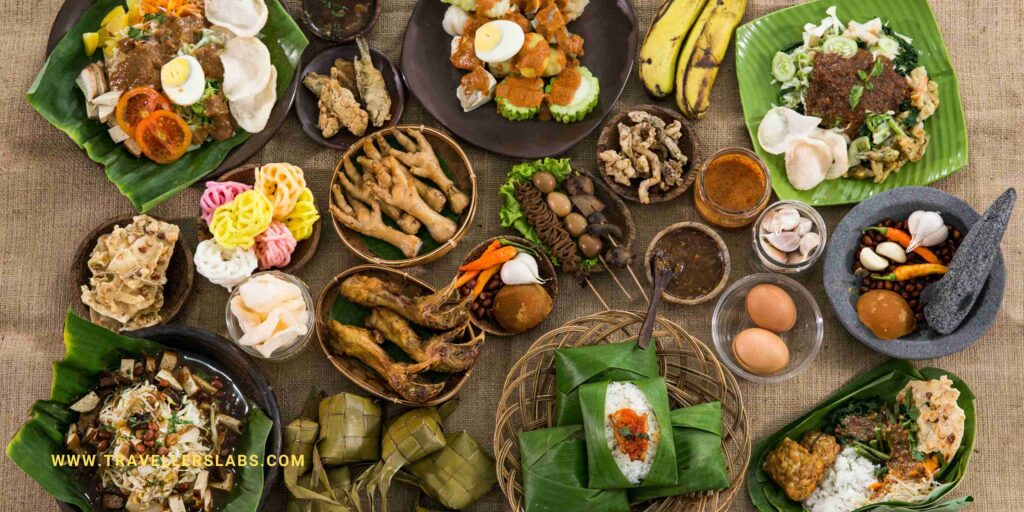Asia, a continent renowned for its rich cultural heritage and diverse cuisines, has become a haven for culinary enthusiasts seeking to tantalize their taste buds and experience the essence of its cultures through food. Culinary tourism and food festivals are emerging as vibrant platforms that not only showcase the region’s delectable offerings but also celebrate its traditions, history, and people.
Culinary Tourism: A Feast for the Senses
Culinary tourism is more than just a quest for delicious dishes; it’s an immersive experience that engages all the senses. From street food stalls to high-end restaurants, Asia’s culinary landscape is a treasure trove of flavors, textures, and aromas waiting to be explored.
Thailand’s bustling markets, for instance, offer an authentic glimpse into its food culture. The vibrant colors of fresh ingredients, the sizzling sounds of stir-frying, and the aromatic blends of spices create an ambience that transports visitors to the heart of Thai cuisine. In Japan, sushi-making workshops and visits to sake breweries provide hands-on encounters with culinary traditions that have been perfected over centuries.
Food Festivals: A Celebration of Culture and Cuisine

Food festivals in Asia are more than just gatherings to indulge in gastronomic delights; they’re celebrations of culture and community. These events bring people together to share in the joy of food, forging connections and fostering an appreciation for the culinary arts.
One of the most iconic food festivals in Asia is the Lunar New Year’s Spring Festival, celebrated across the region with various names and customs. In China, the streets come alive with bustling markets offering an array of traditional New Year dishes, symbolizing prosperity and good fortune. Similarly, in South Korea, the Lunar New Year’s feast, known as “Sollal,” brings families together to enjoy delectable dishes like “tteokguk,” a rice cake soup eaten to mark another year of life.
Fusion of Tradition and Modernity
As Asia continues to evolve, so too does its culinary landscape. Culinary tourism and food festivals are increasingly becoming spaces where tradition and modernity intersect, resulting in innovative culinary experiences that capture the essence of both worlds.
Singapore’s “Hawker Culture,” recognized by UNESCO as an Intangible Cultural Heritage, exemplifies this fusion. Hawker centers are vibrant melting pots of cultures and cuisines, offering traditional dishes alongside contemporary interpretations. Visitors can savor authentic dishes like Hainanese chicken rice or explore inventive creations that pay homage to tradition while embracing innovation.
Preserving Culinary Heritage

Culinary tourism and food festivals also play a pivotal role in preserving cultural heritage. By celebrating and promoting traditional recipes, cooking techniques, and ingredients, these initiatives ensure that the essence of Asia’s culinary diversity is passed down to future generations.
India’s diverse regional cuisines are a testament to this effort. Food festivals such as “Pongal” in Tamil Nadu and “Baisakhi” in Punjab showcase traditional dishes that have been handed down through generations. These events not only offer a chance to savor authentic flavors but also educate participants about the historical and cultural significance of the food they enjoy.
A Culinary Journey of Sustainability
In recent years, culinary tourism has also embraced sustainability, reflecting the growing global concern for the environment. Asia’s diverse ecosystems provide a bounty of fresh produce, seafood, and spices, which local chefs and culinary enthusiasts are now sourcing responsibly and ethically.
Thailand’s “Zero-Waste Kitchen” movement is a prime example of this shift. Restaurants and hotels are embracing eco-friendly practices by minimizing food waste, composting, and sourcing locally to reduce their carbon footprint. Food festivals are also joining the movement, incorporating sustainable practices such as reusable cutlery and waste separation systems.
Culinary tourism and food festivals in Asia offer a delectable journey through the region’s vibrant cultures, traditions, and flavors. From bustling markets to grand celebrations, these experiences engage the senses, bridge generations, and preserve cultural heritage. As the culinary world continues to evolve, Asia’s culinary tourism and food festivals stand as a testament to the profound connection between food, culture, and community. So, embark on this gastronomic journey and savor the richness of Asia—one dish at a time.
This post is sponsored by Wotif. For your upcoming holiday flights, stays, or travel packages, be sure to visit this link here. This will help us to contribute more travel-related content and tips. Use the discount code “TravellersLabs.com” for added savings.

